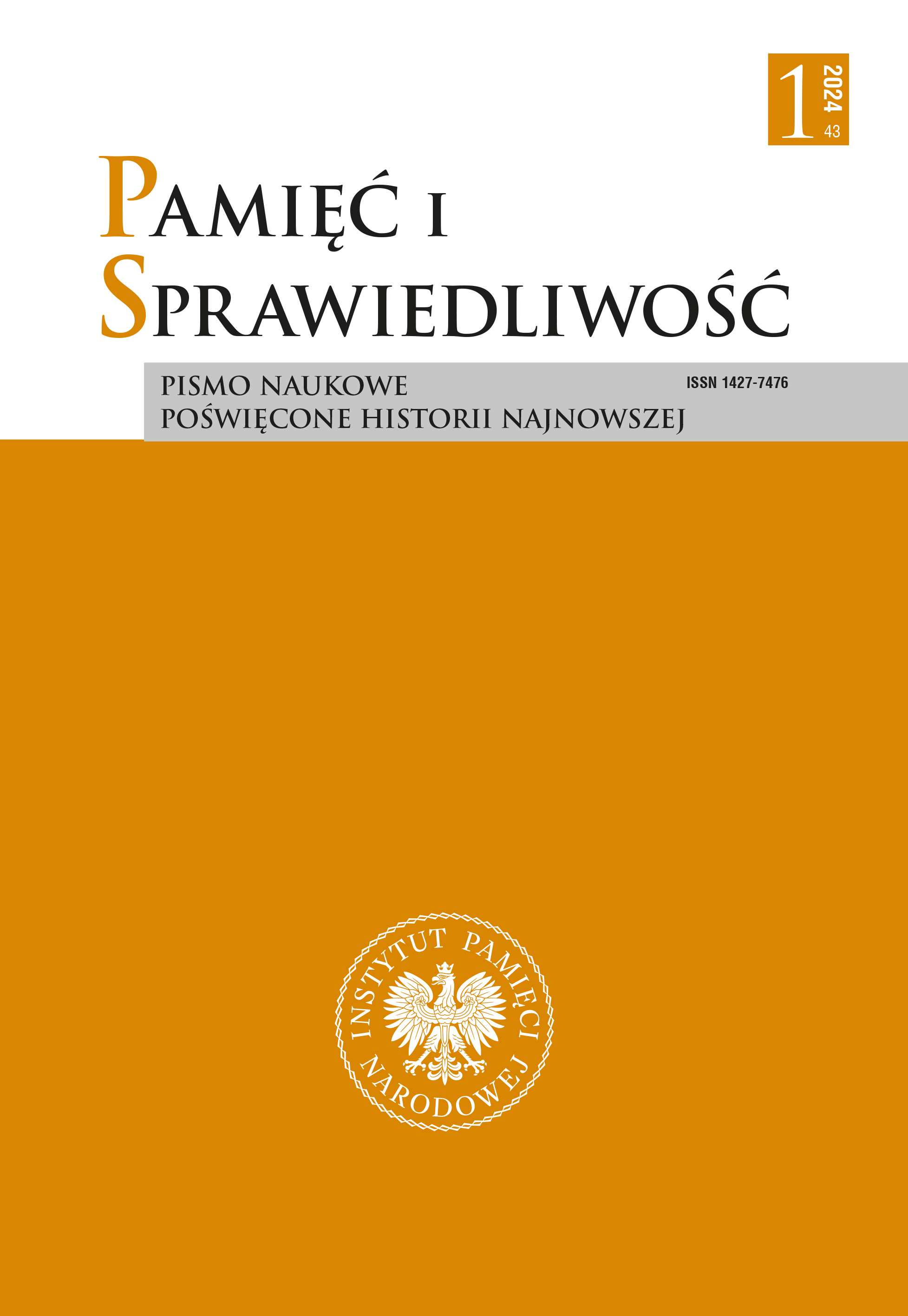Death Sentences in Absentia during Martial Law. The Cases of Romuald Spasowski and Zdzisław Rurarz
Remembrance and Justice, Vol. 43 No. 1 (2024), pages: 66-85
Publication date: 2024-08-09
 https://doi.org/10.48261/PIS244304
https://doi.org/10.48261/PIS244304
Abstract
The system of “people’s” (in)justice during martial law, in addition to the “ordinary” repressive activities faced by the inhabitants of the Polish People’s Republic, sometimes decided – in executing political orders – to make unobvious actions. These included death sentences passed in absentia. After 13 December 1981, six defendants were sentenced in this way, including two defectors – ambassadors of the Polish People’s Republic: Romuald Spasowski and Zdzisław Rurarz. The sentences served an important political and propaganda function: they were intended not only to instil fear among those convicted (in addition to official bodies, there were also special services, which could be tasked with enforcing the sentences), but also to serve as a deterrent to other diplomats and citizens of the Polish People’s Republic who might consider following the path of these “traitors”. Did the courts’ actions meet the authorities’ expectations? Why did unexpected difficulties arise during Spasowski’s trial? What legal tricks were used to fulfil Jaruzelski’s wishes? In the article, the author will look for answers to these and other questions.
References
Archiwum IPN, 938/320; 938/321; 938/322; 938/323; 938/325; 950/1; 950/2; 950/3; 950/4; 01911/76; 0242/2973; 1596/111; 2174/7059; 2333/98/2; 2602/27760.
Archiwum MSZ, 37/07; 37/2007.
Archiwum MSZ, CIA – Freedom of Information Act
Archiwum MSZ, CREST CIA-RDP84B00049R000601440030-9.
Archiwum MSZ, Hoover Library & Archives
Archiwum MSZ, Romuald Spasowski Papers, box 3, 13, 19.
Ustawa z 19 kwietnia 1969 r. – Kodeks karny, DzU 1969, nr 13.
zdzisław-rurarz.info (dostęp 2 VI 2022 r.).
Perfidna gra: spotkania z prof. Rurarzem. Pierwsza część rozmów pomiędzy Zdzisławem M. Rurarzem a Tomaszem S. Pochroniem, Chicago 1993.
Spasowski R., Spowiedź ambasadora, oprac. M.M. Bymora, Warszawa 2022.
Spasowski R., The Liberation of One, San Diego 1986.
Urban J., Alfabet Urbana, Warszawa 1990.
Chmielecki A., Uciekinier z obozu, „Wprost” 2008, nr 45.
Death in Absentia for Polish Defector, „The New York Times”, 5 X 1982.
Kengor P., Ronald Reagan i obalenie komunizmu: zbliżenie na Polskę, Warszawa 2007.
Kochański A., Romuald Franciszek Spasowski, Polski słownik biograficzny, 2002, t. XLI.
Leszczyński A., Ambasadorowie wybierają wolność, „Gazeta Wyborcza”, 3 II 2014 (dodatek „Ale Historia”).
Majchrzak G., Zapomniane kary śmierci, www.13grudnia.org.pl (dostęp 27 III 2023 r.).
Pleskot P., Kłopotliwa panna „S”. Postawy polityczne Zachodu wobec „Solidarności” na tle stosunków z PRL (1980–1989), Warszawa 2013.
Pleskot P., Rurarz, Spasowski – żywoty równoległe. Wokół ucieczek ambasadorów PRL w grudniu 1981 r., t. 1: 1920–1981, t. 2: 1981–2007, Warszawa 2023.
Reszka P., Zdrajcy są bezdomni, „Rzeczpospolita”, 9 I 1998.
Weiser B., Ryszard Kukliński. Życie ściśle tajne, Warszawa 2014.
Zimmerman M., Trzy tragiczne twarze Polski, www.onet.pl (dostęp 2 VI 2022 r.).
License
Copyright (c) 2024 Remembrance and Justice

This work is licensed under a Creative Commons Attribution-NonCommercial-NoDerivatives 4.0 International License.
https://creativecommons.org/licenses/by-nc-nd/4.0
Most read articles by the same author(s)
- Patryk Pleskot, Suicide, Accident or Murder? On the Death of Jerzy Zawieyski (1969) , Remembrance and Justice: Vol. 24 No. 2 (2014)
- Patryk Pleskot, [Recenzja] Patryk Pleskot, Sukces „grzecznej” historii. Niemiecko-francuski podręcznik historii najnowszej , Remembrance and Justice: Vol. 15 No. 1 (2010)
 Język Polski
Język Polski
 English
English
 Deutsch
Deutsch
 Français (France)
Français (France)
 Italiano
Italiano
 Русский
Русский



 PDF (Język Polski)
PDF (Język Polski)




